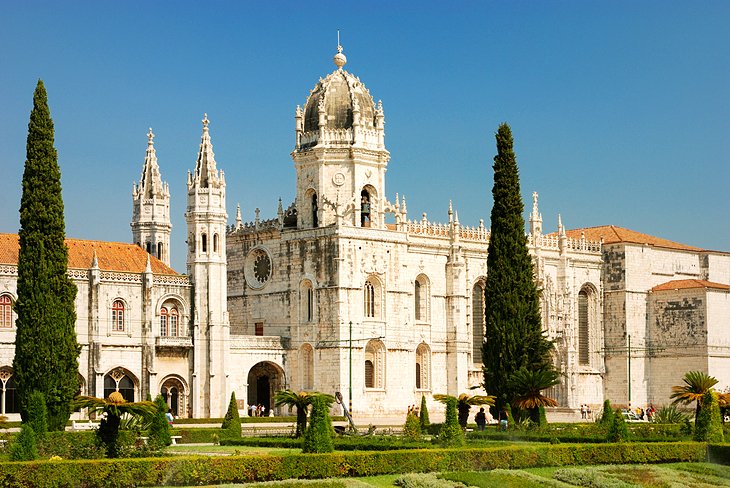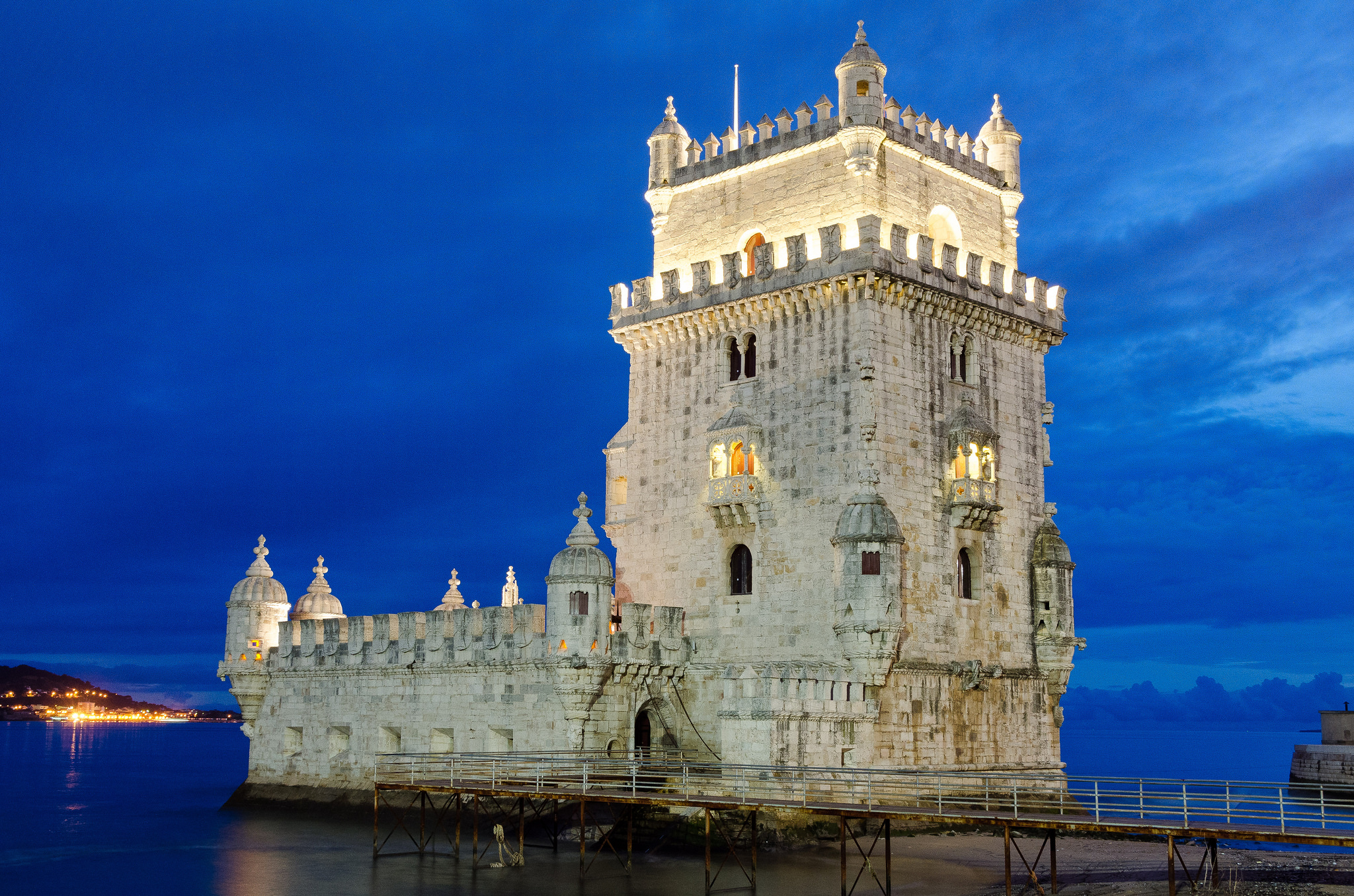
Portugal, a nation steeped in maritime history and bathed in golden sunlight, beckons travelers with its captivating blend of ancient traditions and vibrant modernity. From the Fado-infused streets of Lisbon to the sun-drenched beaches of the Algarve, and the verdant vineyards of the Douro Valley, this Iberian gem offers an astonishing diversity of experiences. Whether you’re a history buff, a food enthusiast, an art lover, or simply seeking a tranquil escape, Portugal promises a journey that will linger long in your memory.
Unveiling the Crown Jewels: Top Attractions in Portugal
Portugal’s allure lies in its multifaceted attractions, each telling a unique story of its rich past and vibrant present.

Related Articles about Portugal: A Tapestry of Sun, Soul, and Unforgettable Experiences:
- The Unyielding Pulse of the Metropolis: Your Ultimate Guide to New York City
- Lights, Camera, Luxury: Your Ultimate Guide to Los Angeles’ Best Hotels
- Tokyo: A Metropolis of Enchantment – Your Ultimate Travel Guide
- Vancouver: A Jewel on the Pacific Rim – Your Ultimate Travel Guide
- Denmark’s Crown Jewels: A Journey Through the Best Hotels and Enchanting Experiences
1. Lisbon: The City of Seven Hills and Endless Charm
The capital city, Lisbon, is an undeniable magnet for visitors. Its iconic yellow trams, like the famous Tram 28, trundle through narrow, winding streets, revealing postcard-perfect views at every turn.
- Belém Tower (Torre de Belém): A UNESCO World Heritage site, this ornate fortress stands as a testament to Portugal’s Age of Discovery. Its Manueline architecture, with maritime motifs, is a visual feast.
- Jerónimos Monastery (Mosteiro dos Jerónimos): Another UNESCO marvel, this grand monastery in Belém is a masterpiece of Manueline style, housing the tombs of Vasco da Gama and Luís de Camões.
- São Jorge Castle (Castelo de São Jorge): Perched atop Lisbon’s highest hill, this ancient castle offers panoramic vistas of the city and the Tagus River. Explore its ramparts and soak in the historical ambiance.
- Alfama District: Lisbon’s oldest district, Alfama, is a labyrinth of narrow alleys, charming squares, and Fado houses. Get lost in its bohemian atmosphere and listen to the melancholic strains of Fado music.
- Bairro Alto: By day, a charming neighborhood; by night, Lisbon’s vibrant nightlife hub, brimming with bars, restaurants, and live music venues.
- Time Out Market Lisboa: A gastronomic paradise, this bustling market brings together some of Lisbon’s best chefs and food stalls, offering a delightful culinary exploration.

2. Porto: The Wine City and Riverside Romance
Portugal’s second-largest city, Porto, is renowned for its port wine production and its stunning riverside setting.
- Ribeira District: A UNESCO World Heritage site, the Ribeira district is a picturesque waterfront area with colorful buildings, traditional Rabelo boats (used to transport port wine), and lively cafes.
- Dom Luís I Bridge: This iconic double-deck iron bridge, designed by a disciple of Gustave Eiffel, offers breathtaking views of the Douro River and both sides of the city.
- Livraria Lello: Often cited as one of the most beautiful bookstores in the world, Livraria Lello boasts an impressive Art Nouveau interior and a famous red staircase that is said to have inspired J.K. Rowling.
- Port Wine Cellars (Vila Nova de Gaia): Across the river from Porto, in Vila Nova de Gaia, you can tour the historic port wine cellars, learn about the production process, and indulge in tastings.
- Clérigos Church and Tower (Igreja e Torre dos Clérigos): Climb the tower for unparalleled panoramic views of Porto and its surroundings.
3. Sintra: A Fairytale Escape into Palaces and Forests
Just a short train ride from Lisbon, Sintra feels like stepping into a fairy tale. This enchanting town is nestled amidst lush hills and dotted with whimsical palaces and ancient castles.
- Pena Palace (Palácio da Pena): A vibrant Romanticist castle perched atop a hill, Pena Palace is a riot of color and architectural styles, offering breathtaking views.
- Quinta da Regaleira: This mystical estate features enchanting gardens, hidden tunnels, wells, and symbolic structures, inviting exploration and intrigue.
- Moorish Castle (Castelo dos Mouros): Explore the ancient ramparts of this medieval castle, offering stunning views of the Sintra hills and the coastline.
- National Palace of Sintra (Palácio Nacional de Sintra): Known for its distinctive twin conical chimneys, this palace was a royal residence for centuries.
4. The Algarve: Sun-Kissed Beaches and Dramatic Coastlines
The southernmost region of Portugal, the Algarve, is synonymous with golden sandy beaches, dramatic cliffs, and crystal-clear waters.
- Praia da Marinha: Consistently ranked among the most beautiful beaches in the world, Praia da Marinha is famous for its stunning rock formations and turquoise waters.
- Benagil Cave: Accessible by boat or kayak, this iconic sea cave boasts a natural skylight that illuminates the interior with an ethereal glow.
- Lagos: A vibrant coastal town offering beautiful beaches, a charming old town, and lively nightlife. Don’t miss the Ponta da Piedade rock formations.
- Albufeira: A popular resort town with a lively atmosphere, beautiful beaches, and a wide range of restaurants and entertainment options.
- Tavira: A more traditional and tranquil town, Tavira boasts a historic center, Roman bridge, and beautiful islands accessible by ferry.
5. Douro Valley: A Scenic Journey Through Vineyards and Rivers
The Douro Valley, a UNESCO World Heritage site, is one of the world’s oldest demarcated wine regions, famous for its port wine production and breathtaking landscapes.
- River Cruises: A leisurely cruise along the Douro River offers unparalleled views of the terraced vineyards, charming quintas (wine estates), and picturesque villages.
- Wine Tastings: Visit traditional quintas to learn about the wine-making process and sample exquisite port and table wines.
- Pinhão: A charming village known for its beautiful train station adorned with azulejo tiles depicting vineyard scenes.
Beyond the Top Tier:
- Évora: A UNESCO World Heritage city in the Alentejo region, Évora boasts a well-preserved Roman Temple, a macabre Chapel of Bones, and a charming medieval old town.
- Coimbra: Home to one of Europe’s oldest universities, Coimbra offers a rich historical and intellectual heritage, with its stunning library and ancient university buildings.
- Madeira: The "Pearl of the Atlantic," this volcanic island paradise offers dramatic landscapes, lush levada walks, and unique flora and fauna.
- Azores: An archipelago of nine volcanic islands in the mid-Atlantic, the Azores are a haven for nature lovers, offering stunning crater lakes, geothermal activity, and incredible whale watching opportunities.
A Glimpse into Portugal’s Rich History
Portugal’s history is a compelling narrative of exploration, empire, and resilience.
- Early Inhabitants and Roman Influence: The region was inhabited by various tribes before being conquered by the Romans in the 2nd century BC. Roman influence can still be seen in ruins like the Temple of Évora.
- Moorish Rule: From the 8th to the 13th century, much of Portugal was under Moorish rule, leaving a lasting impact on architecture, language, and culture.
- The Reconquista and the Birth of Portugal: The Christian kingdoms of the north gradually reconquered the territory, leading to the establishment of Portugal as an independent kingdom in the 12th century.
- The Age of Discovery (15th-16th Centuries): This was Portugal’s golden era, marked by pioneering voyages of exploration. Henry the Navigator, Vasco da Gama, and Ferdinand Magellan (though sailing for Spain) were instrumental in charting new sea routes, leading to the establishment of a vast colonial empire.
- The Portuguese Empire: At its zenith, Portugal commanded a vast empire stretching across Brazil, Africa, and Asia, shaping global trade and culture.
- Decline and Modernity: The empire gradually declined, and Portugal faced periods of political upheaval, including a dictatorship under Salazar. The Carnation Revolution in 1974 ushered in democracy, and Portugal has since become a modern, democratic nation and a member of the European Union.
Navigating Your Portuguese Adventure: Travel Tips
To make the most of your trip to Portugal, consider these practical tips:
- Language: Portuguese is the official language. While English is widely spoken in tourist areas, learning a few basic Portuguese phrases will be appreciated.
- Currency: The currency is the Euro (€).
- Tipping: Tipping is not mandatory but is appreciated for good service. Rounding up the bill or leaving 5-10% in restaurants is common.
- Safety: Portugal is generally a safe country. However, be mindful of pickpocketing in crowded tourist areas.
- Connectivity: Wi-Fi is widely available in hotels, cafes, and public spaces. Consider purchasing a local SIM card for easier data access.
- Respectful Travel: Be mindful of local customs and traditions, especially when visiting religious sites.
- Embrace the Pace: Portugal often operates at a more relaxed pace. Embrace it, enjoy the moments, and don’t rush.
Finding Your Home Away From Home: Accommodation Options
Portugal offers a diverse range of accommodation to suit every budget and preference:
- Hotels: From luxury five-star establishments in Lisbon and the Algarve to charming boutique hotels in historic towns, hotels are plentiful.
- Guesthouses (Pousadas): Often located in historic buildings or former convents, pousadas offer a unique and often luxurious experience.
- Apartments and Villas: Ideal for families or longer stays, renting an apartment or villa provides flexibility and a home-like feel. Platforms like Airbnb are very popular.
- Hostels: A budget-friendly option, hostels are found in most major cities and offer dorm rooms and private rooms.
- Rural Tourism (Turismo Rural): Experience the authentic Portuguese countryside by staying in a restored farmhouse or rural estate.
Getting Around: Transportation in Portugal
Portugal boasts a well-developed transportation network:
- By Air: Lisbon (LIS) and Porto (OPO) are the main international airports. Faro (FAO) serves the Algarve.
- By Train: The national rail operator, Comboios de Portugal (CP), offers an efficient network connecting major cities and towns. High-speed trains operate on some routes.
- By Bus: Rede Expressos is the main intercity bus company, offering extensive routes and often a more affordable option than trains. Local buses serve within cities and regions.
- Car Rental: Renting a car offers the most flexibility, especially for exploring rural areas and the Algarve. Roads are generally well-maintained. Be aware of tolls on some highways.
- Within Cities:
- Lisbon: Metro, trams, buses, and ferries are efficient. Walking is also a great way to explore.
- Porto: Metro, trams, and buses are available. Walking is highly recommended for the Ribeira district.
- Taxis and Ride-Sharing: Available in most cities.
When to Chase the Sun: Best Time to Visit Portugal
Portugal enjoys a pleasant climate for much of the year, but the best time to visit depends on your priorities:
- Spring (March-May): Pleasant temperatures, blooming flowers, and fewer crowds make this an ideal time for sightseeing and outdoor activities. The Algarve is beautiful, and the cities are vibrant.
- Summer (June-August): This is peak season, with hot, sunny weather, particularly in the Algarve. Beaches are bustling, and prices can be higher. Ideal for sun-seekers and water sports.
- Autumn (September-November): The weather remains warm and pleasant, with fewer crowds than summer. The harvest season in the Douro Valley is a special time. This is a great time for exploring cities and enjoying the coastal areas.
- Winter (December-February): Mild temperatures in the south, though cooler and wetter in the north. This is the low season, offering lower prices and fewer tourists. It’s a good time for city breaks, enjoying museums, and experiencing local life.
In Conclusion:
Portugal is a country that effortlessly weaves together history, culture, and natural beauty into an unforgettable travel experience. From the echoes of its seafaring past to the contemporary buzz of its cities, Portugal offers a rich tapestry for every traveler to explore. Pack your bags, open your mind, and prepare to be enchanted by the land of saudade and sunshine.





